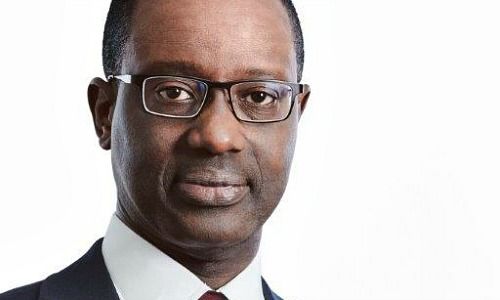CEO Tidjane Thiam doesn't only refurbish Credit Suisse. He also says goodbye to the «return-on-equity»-mantra.
Tidjane Thiam (pictured) welcomed the media at an «ungodly hour» yesterday morning in Zurich. Presenting the new strategy of Credit Suisse, he was however wide awake and relaxed at the same time.
One question only by a journalist had him lose control for a moment: What return on equity Credit Suisse would be able to deliver in future.
Full of Imponderables
His answer was blunt: The goals defined by CS included profit, cost-benefit-ratio, amount of cash held. A specific target for return on equity would most certainly not be defined, he muttered.
These targets had been missed again and again in the banking world, he added. The problem with return on equity was that the figure was full of imponderables and therefore hardly a measure that the management could control.
The Old Love of Managers
The former McKinsey consultant clearly hates the lack of predictability. «I would be a fool to define something beyond my control», he exclaimed.
This marks a clear break with the past of Swiss banking. The number was upheld as quintessential for decades, it was clearly the love of a string of managers.
Excuse for Wage Excesses
A high return on equity served managers as excuse for exorbitant wages, as proof of their faithfulness to shareholder value and justification for deals bolstered by borrowed money.
The best known adherents of this fetish were Marcel Ospel, the former UBS chairman, and Josef «Joe» Ackermann, the ex-Deutsche Bank manager.
Credit Suisse under former CEO Brady Dougan also committed to return on equity. Dougan in 2012 said, he was convinced that the bank would achieve a return on equity of 15 percent.
Sliding Ratio
The erosion of the ratio has been unstoppable since, making the bank a target of harsh investor criticism. The pressure won't abate. The return in the third quarter dropped 3 percentage points to 7 percent compared with the previous three-month period.
Which nurtures the thought that the CS CEO banishes the number, which gives him the biggest headache. Banking experts agree that return on equity won't recover that quickly.
So, just maybe, Thiam's decision to turn his back on return on equity may be the first in a long line.

































